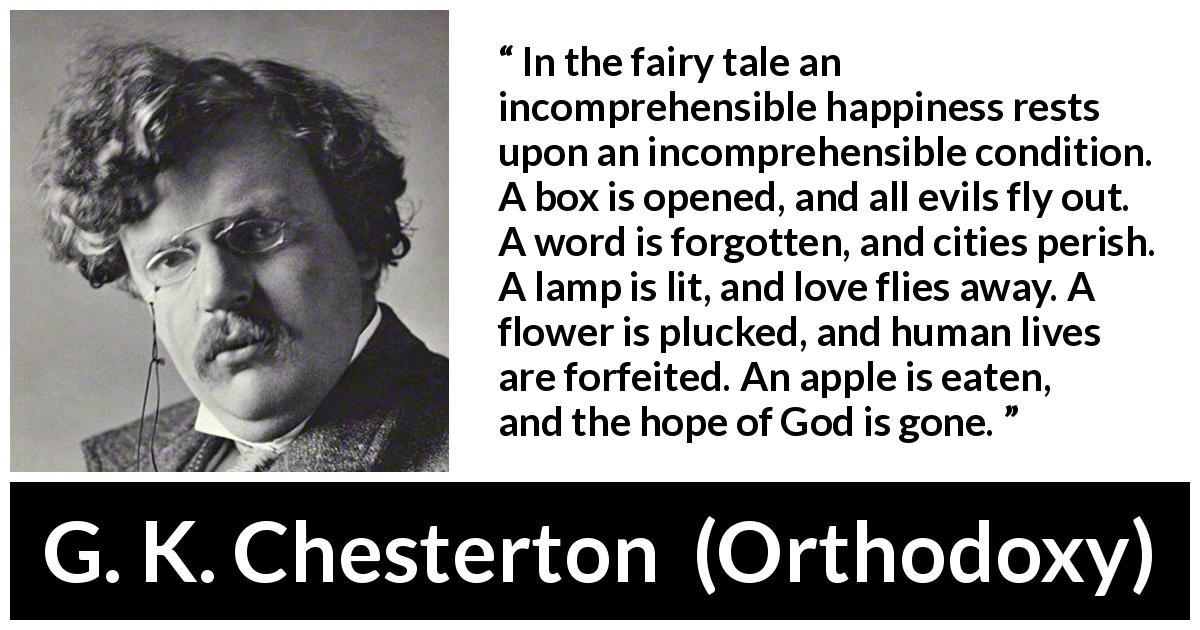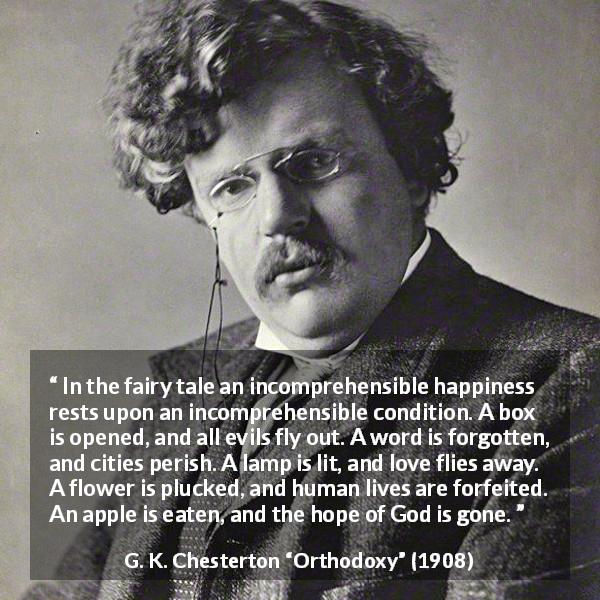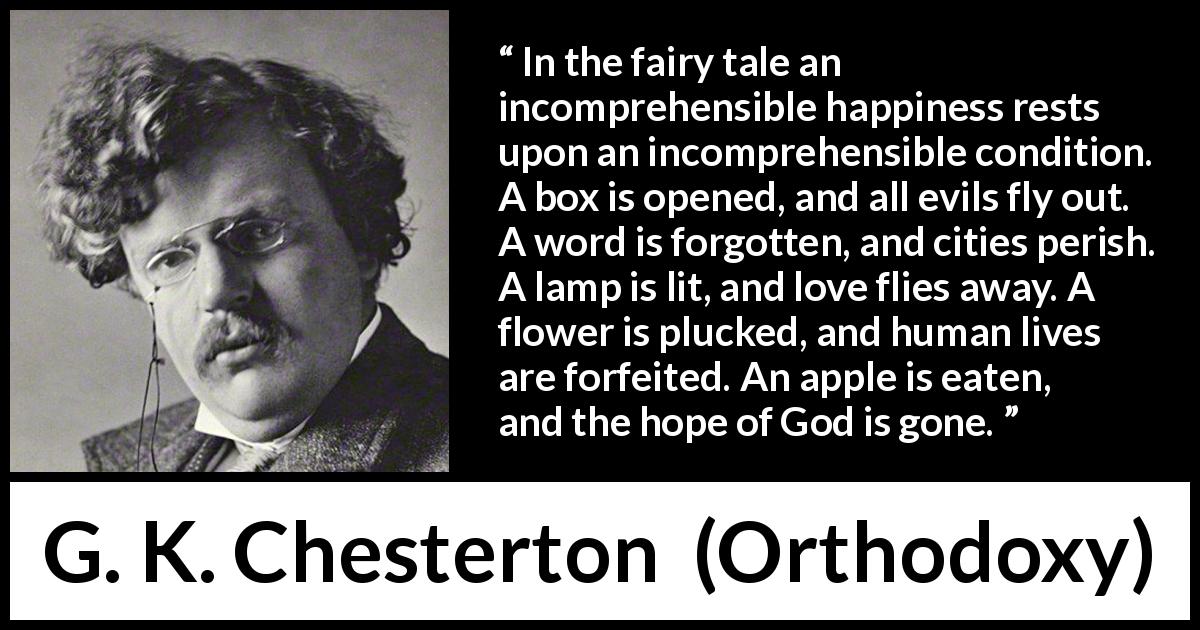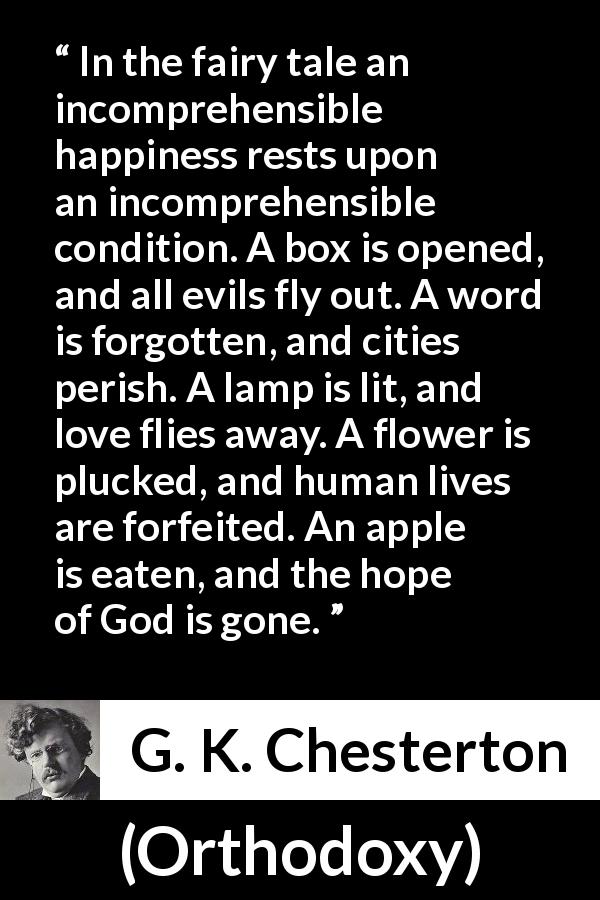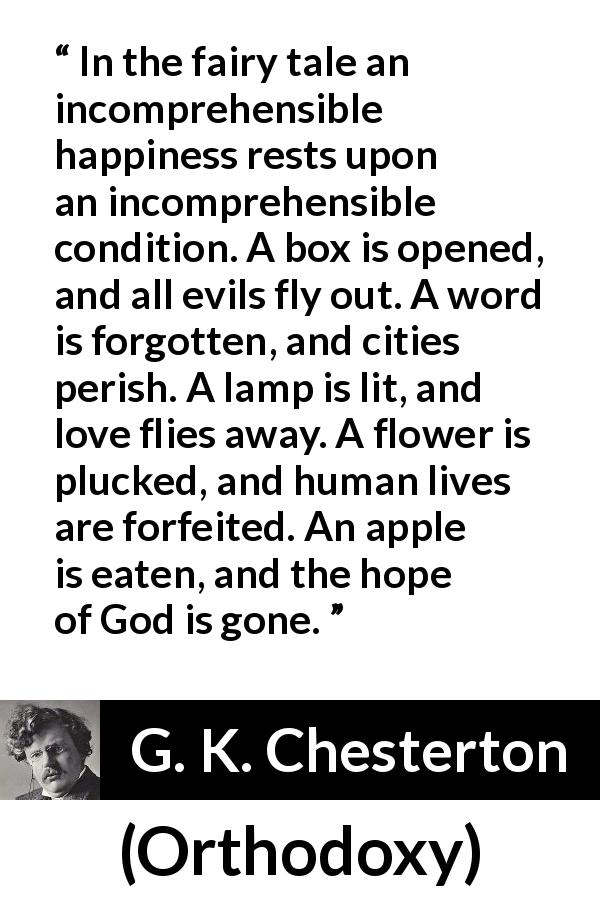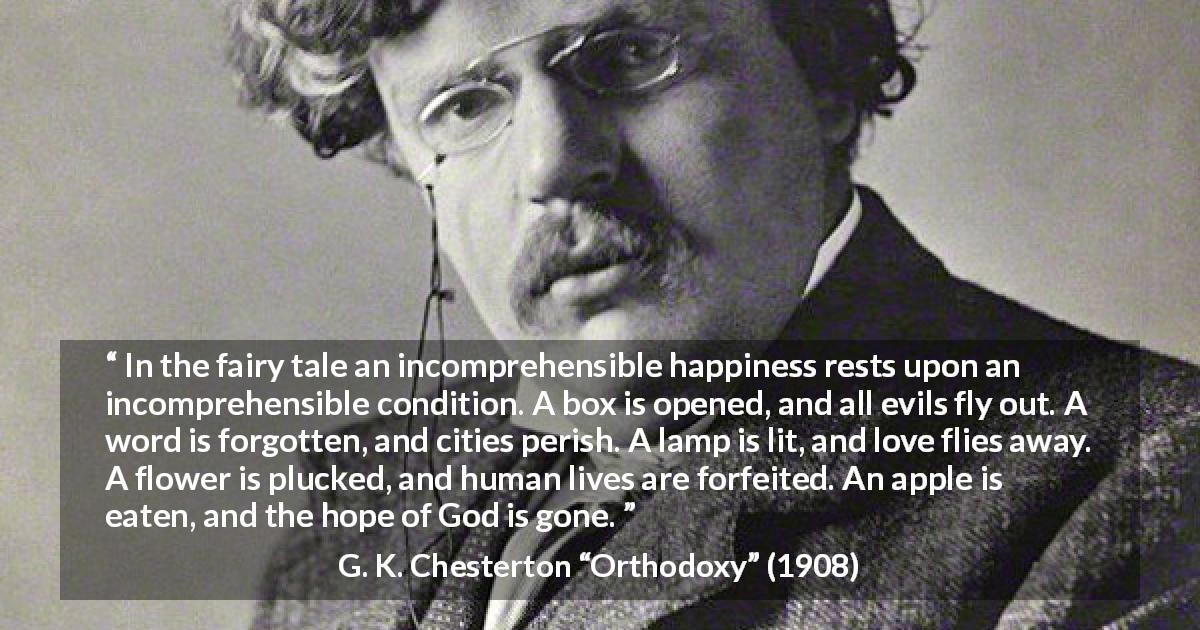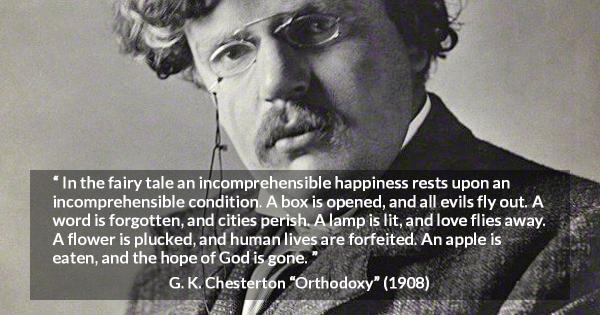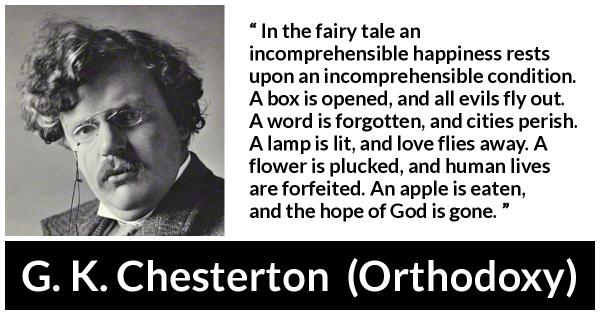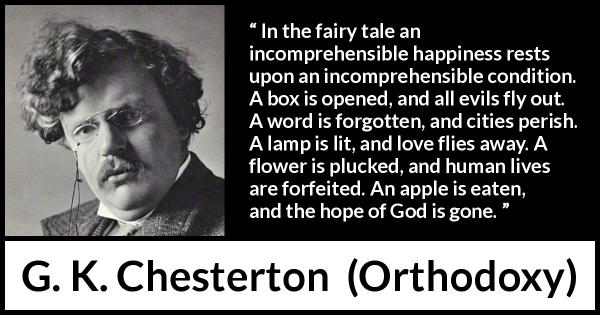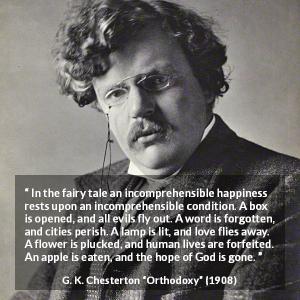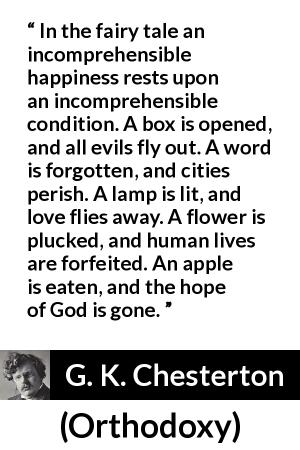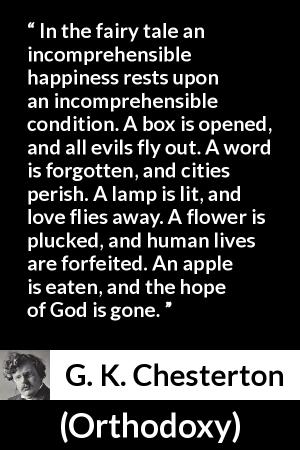“ In the fairy tale an incomprehensible happiness rests upon an incomprehensible condition. A box is opened, and all evils fly out. A word is forgotten, and cities perish. A lamp is lit, and love flies away. A flower is plucked, and human lives are forfeited. An apple is eaten, and the hope of God is gone. ”
G. K. Chesterton, Orthodoxy (1908). copy citation
| Author | G. K. Chesterton |
|---|---|
| Source | Orthodoxy |
| Topic | happiness tale conditions |
| Date | 1908 |
| Language | English |
| Reference | |
| Note | |
| Weblink | http://www.gutenberg.org/cache/epub/130/pg130-images.html |
Context
“But the lawlessness of Ireland is a Christian lawlessness, founded on reason and justice. The Fenian is rebelling against something he understands only too well; but the true citizen of fairyland is obeying something that he does not understand at all. In the fairy tale an incomprehensible happiness rests upon an incomprehensible condition. A box is opened, and all evils fly out. A word is forgotten, and cities perish. A lamp is lit, and love flies away. A flower is plucked, and human lives are forfeited. An apple is eaten, and the hope of God is gone.
This is the tone of fairy tales, and it is certainly not lawlessness or even liberty, though men under a mean modern tyranny may think it liberty by comparison. People out of Portland Gaol might think Fleet Street free; but closer study will prove that both fairies and journalists are the slaves of duty.” source
This is the tone of fairy tales, and it is certainly not lawlessness or even liberty, though men under a mean modern tyranny may think it liberty by comparison. People out of Portland Gaol might think Fleet Street free; but closer study will prove that both fairies and journalists are the slaves of duty.” source
